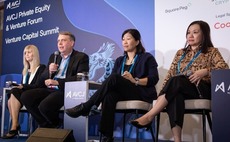
IPOs, and other China exits
Hony Capital was responsible for one of the more unusual transactions of the holiday period. The private equity firm provided the cash option for shareholders who didn’t want to participate in China International Marine Containers’ conversion of its Shenzhen-listed B-shares to Hong Kong-listed H-shares.
While this isn't expected to be a significant source of deal flow for PE players, more firms are planning the same transition. The Hong Kong Stock Exchange could do with new equity as long as in...
Latest News
Asian GPs slow implementation of ESG policies - survey
Asia-based private equity firms are assigning more dedicated resources to environment, social, and governance (ESG) programmes, but policy changes have slowed in the past 12 months, in part due to concerns raised internally and by LPs, according to a...
Singapore fintech start-up LXA gets $10m seed round
New Enterprise Associates (NEA) has led a USD 10m seed round for Singapore’s LXA, a financial technology start-up launched by a former Asia senior executive at The Blackstone Group.
India's InCred announces $60m round, claims unicorn status
Indian non-bank lender InCred Financial Services said it has received INR 5bn (USD 60m) at a valuation of at least USD 1bn from unnamed investors including “a global private equity fund.”
Insight leads $50m round for Australia's Roller
Insight Partners has led a USD 50m round for Australia’s Roller, a venue management software provider specializing in family fun parks.






